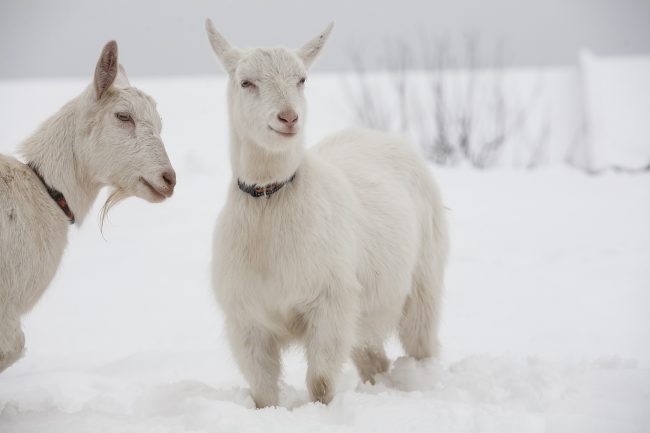
Winter can bring about harsh weather and dangerous road conditions, so it’s important to stay vigilant about your pets’ well-being during colder months. If you have a beloved cat, dog, goat, rabbit or hamster (or even a house full of furry friends), learning how to care for them during storms and snowfall will have an impact on their overall health and help them remain safe, even in extreme weather conditions.
We all need a little extra care at wintertime, and our pets are no exception. Luckily, there are plenty of things you can do to help keep your animals warm and toasty this season, as we wait for summer to emerge. Here are four tips to help you protect your pets when the cold weather hits.
Keep Them Warm
When temperatures drop, it’s important to keep your pets warm and dry. All small pets such as ferrets, hamsters, and mice should be kept indoors, away from cold drafts, and given extra bedding hay. You should also consider bringing outdoor animals like rabbits and guinea pigs indoors when the weather gets colder. If pets are kept in a conservatory area then be sure to provide extra insulation by draping blankets or tarps over their hutches; you should also wrap up their water bottles or get a water heater to keep their water from freezing. If your pet gets very cold, watch out for signs of hypothermia.
Help Them Stay Active
It’s natural for cats and dogs to want to stay indoors during colder months, but dogs in particular need sunlight and outdoor exercise at least once a day. Wrap your canine friend up in a winter coat when it’s frosty, and don’t rule out winter boots for sensitive paws – especially if there’s snowfall. If your cat likes to go outside all year round, make sure you provide a warm, dry shelter she can retreat to, and consider installing a cat flap so she can get back indoors.
Minimize Hidden Hazards
Our homes contain many hidden hazards that can be dangerous for our pets, especially during winter. Beware of leaving chemicals like anti-freeze and de-icers lying around, as these can be toxic to pets. You should be particularly vigilant if you have cats, as they like the sweet taste of these chemicals.
Salt and grit also be toxic if licked off their paws, so opt for a pet-friendly product if you need to salt your drive. If you think your pet has ingested poison, take them to The Vet immediately. Signs to watch out for include vomiting, loss of appetite, diarrhea and discolored gums. If you don’t already have it, consider signing up for pet insurance.
Keep Them Calm
Extreme weather can be frightening for animals, so help them stay calm by creating comfortable areas for them to sleep where noise is minimal. Cats tend to feel safer when they’re up high, so consider making them a bed on a shelf or in a loft. Bring small pets inside or move them to a sheltered area like a garage or shed, and put a radio or TV on quietly for comfort. Luckily, if you have chickens, almost all of this is unnecessary!



